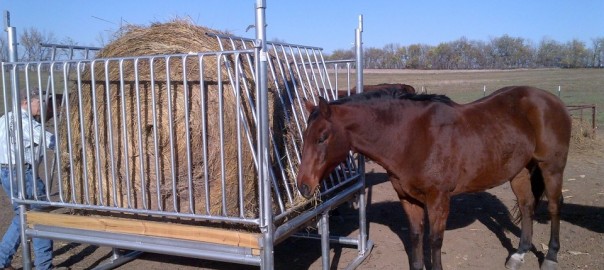Without the right amount of protein, carbohydrates, fiber, vitamins and minerals, horses, cattle and other livestock could suffer from poor nutrition. For optimal growth, it is important your livestock is getting the proper nutrients.
Most feeds are simply designed to be the primary source of food for animals, while others are designed with a primary focus on animals eating forage with extra protein and energy so if necessary, they can improve their diet.
For horses, most do not need grain as good quality hay will suffice. And, while grain can be added, the majority of their nutrition should come from roughage. This makes ensuring you contain as much hay as possible in a hay feeder important in order to save hay and money.
If you do feed your horse grain, it should be given in small amounts as they can’t digest large amounts effectively. Find out more about the best way to feed your horse.
When it comes to feed, it isn’t always ‘one-size-fits-all.’ Your horse and/or cattle will have unique needs, so it is important to be aware of which feeds will be best for them based on their nutritional needs.
Different types of feed include:
- Pelleted cattle feed (ingredients are formed into small pellets)
- Sweet feed (comes from fresh grains)
- Block feed (formed into solid blocks)
Similarly, there are different types of minerals that are important for your cattle’s’ health. Minerals can be loose, separated in mineral feeders, or if preferred, they can be added to normal feed the same way humans would add salt onto food, whereas block minerals are meant for animals to lick.
To keep your animal’s energy up, be sure to provide ample water, carbohydrates, protein, fiber, vitamins and minerals.
